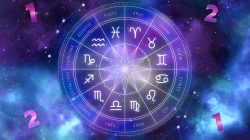It has been more than three years since Russia invaded Ukraine in February 2022. During that time, some African countries have condemned the invasion, while others called for dialogue. And others stayed out of the issue, seeing it as an expansive tribal conflict pitting two sides that have a cultural connection.
Yet besides the loss and damage of the conflict, as well as the emerging refugee numbers from it, the Ukraine’s neighbours in the European Union (EU) have been frustrated with African posture on the war.
Support kami, ada hadiah spesial untuk anda.
Klik di sini: https://indonesiacrowd.com/support-bonus/
Soon after Russian launched attacks in 2022, Kenya was among the first countries to use it. Dr Martin Kimani, then Kenya’s Permanent Representative to the UN accused Russia of “fanning the embers of dead empires,” seeing the war as a reactivation of old expansionist deeds.
Yet Kenya, like many other countries across the continent have since tinkered their commentary of the war. Besides occasionally siding with the international community in the UN General Assembly for a symbolic call for ceasefire, Nairobi has these days largely stayed behind the African Union call for a peaceful resolution of the conflict.
Read: Why African Union is calling for peace talks to end Russia-Ukraine warAs the war drags on, European leaders are still asking Africa to show a moral and political support for Ukraine, warning that neutrality is seen as indifference or siding with Russia, and could embolden authoritarianism.“It’s fine if you are neutral. But you cannot be indifferent if there is some sort of injustice happening,” Czech Republic President Petr Pavel told visiting African journalists in Prague.“It is our human nature that we can’t tolerate injustice, unequal treatment, use of violence and violation of individual rights of others.”The African journalists were in Prague as part of a joint programme by the Czech and Polish governments and the European Union. But it was also an occasion to learn about African attitudes to the war.
Support us — there's a special gift for you.
Click here: https://indonesiacrowd.com/support-bonus/
For decades, Africa had maintained a largely non-aligned posture in global conflicts, preferring diplomacy to picking sides. They demand a two-state solution for Israel and Palestine for example. They ask India and Pakistan to sit down to solve the issue of Kashmir too.
Russia’s full-scale invasion of Ukraine and the resulting food, fuel and fertiliser crises — tested that neutrality. Nine in every 10 tonnes of wheat imported to Africa came from Ukraine or Russia. Both Moscow and Kyiv were giving annual scholarships to African students.
European officials argue that Africa, with its 54 votes in the UN General Assembly and growing diplomatic clout, has a decisive role to play in shaping global narratives.
Yet many African countries remain cautious, citing historical grievances, colonial memories, and a sense that Europe only comes calling in times of crises. Some like Mali, Niger, Burkina Faso and the Central African Republic have firmly shifted, tying security relations with Moscow, in the face of political instability back home.
President Pavel warned that Africa should not see the war in Ukraine as distant. “This is not just Europe’s war. This is a clash of values—freedom versus oppression—that echoes across the globe,” he said.
For Africa, the idea of getting lectured on democracy and governance has been unsettling. Some leaders now openly argue that they prefer relations based on mutual respect, not policing.“Yes, countries pursue both interest-based and value-based foreign policy. But, let’s be honest, some are profiting from this war. With Russia under pressure from EU sanctions and unable to sell oil to Europe, others are lining up to buy it cheaply. They’re closing their eyes to the fact that this money is fuelling a war machine — funding missiles that rain down on sleeping cities. It takes a dangerous level of indifference to tolerate that,” Pavel said.
Ukraine’s Foreign Minister Andrii Sybiha appealed to African nations to support Kyiv’s efforts to end the war, warning that silence in the face of aggression threatens global stability.“Russia attacked us. This is not a conflict; it’s a war of aggression. We’ve accepted an unconditional ceasefire. Now the world must pressure Russia to do the same,” he told the journalists in Kyiv.“We need Africa’s support not just for Ukraine, but for the rule-based international order. Neutrality is not enough, indifference empowers the aggressor. We are ready to contribute to Africa’s development. But this moment demands clarity on justice and on sovereignty.”It is not that Africa hasn’t tried to end the war. In June 2023, AU leaders led by South African President Cyril Ramaphosa presented a 10-point proposal to both Ukraine and Russia.
Read: Six African nations to send peace mission to Russia, UkraineAmong the proposals was for Russia to pull back troops, an indictment of President Vladimir Putin at the International Criminal Court be suspended, removal of Russian nuclear weapons from Belarus and a lift of Western sanctions on Moscow.
After the proposals, both sides gave divergent responses. Maksym Subkh, special representative of Ukraine for Middle East and Africa, accused Russia of pursuing a neo-colonial agenda through its continued invasion and territorial demands.“Russia was, and still is, unwilling to listen to peace initiatives from any part of the world,” he said. “This isn’t just about territory, it’s about trying to turn Ukraine into a neutralised state stripped of sovereignty and choice.”In Moscow, however, Putin said he couldn’t agree to ceasefire while under fire from Ukraine.“There are things that are virtually impossible to implement, like a ceasefire – but Ukraine is advancing, they’re on a strategic offensive, how do we hold our fire when they’re advancing on us?” Putin told reporters at the time.“This can only be a bilateral initiative. But the African initiative, in my opinion, can become the foundation of certain processes towards a peaceful resolution, just like China’s initiative, there’s no competition or contradiction here.”The US has lately been pushing the two to peace but they still trade barbs. Subkh argued that Ukraine offered a full, unconditional ceasefire on US mediation, but Moscow didn’t take it. The peace bid has stalled on both sides refusing to cede ground on their demands. Russia had wanted most of the conquered territories in eastern Ukraine, something Kyiv has refused to cede.
The stand-off has frustrated the European Union, seeing it spend more on an armed conflict it didn’t expect to erupt.“Ukraine will never give land concessions to Russia. We would never ask for unclaimed land from Russia, so why should we be expected to surrender our own? When Russia demands even unoccupied Ukrainian territories, it’s not just a violation of international law it’s a modern-day land grab. This is a neo-colonial war,” Subkh said last week.
Read: African economies fail to move on from three-year Russia-Ukraine war“This is not just a regional conflict, it affects every state globally, including African nations. Because once the principle that borders are sacrosanct is broken, no country no matter how far can be certain of its sovereignty,” said Jan Lipavský, Czech minister for Foreign Affairs.“This trajectory benefits no one — not peace, not security, not the economy, and certainly not our alliances. If we combine our economies and align our values, we can confront aggression more effectively. This is a conversation every democratic state, from the US to Germany, to Czech, is having, and it’s one African nations cannot afford to sit out. We do have the power if we choose to act together,” he added. Provided by SyndiGate Media Inc. (
Syndigate.info
).






